Discover a wealth of resources designed to help you support women and families impacted by perinatal mental health problems. Whether you work in healthcare, local or national government we hope you find what you need.
We are in the process of updating the Hub, so if you have a resource to add or think something is missing, please email info@maternalmentalhealthalliance.org.
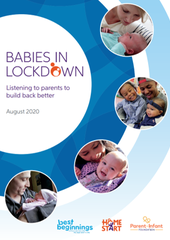
Best Beginnings, Home-Start, Parent Infant Foundation Pdf, 5.5mb
Published: August 2020
Lockdown has been a seismic shock for every family and community. Sadly, the voices of the hardest hit have been heard the least. This report sets about to change this by exploring pandemic and lockdown reflections from a diverse group of expectant and new parents during the critical first months and years of their babies’ development.
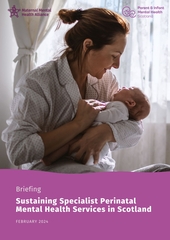
MMHA X PIMHS Pdf, 7.1mb
Published: February 2024
Unprecedented Scottish Government investment in this area since 2019 has led to the expansion of existing specialist CPMHTs in three Health Boards and the creation of nine new services. This means many more women, babies, and families in Scotland can access and benefit from this critical care. While there is much to be celebrated, there is still much more work to be done.
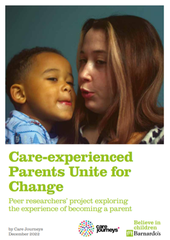
Barnardo's Pdf, 607.0kb
Published: December 2022
Young people who grew up in the care system are around 2.5 times more likely to become pregnant compared with other teenagers. These young people face the challenge of transitioning to independent living, while also having to ensure the needs of their child are met.
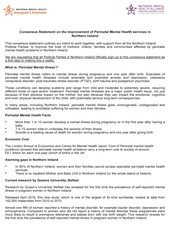
MMHA Pdf, 4.8mb
Published: April 2019
This consensus statement outlines the intent for all parties across Northern Ireland to work together to improve the lives of mothers, infants, families and communities affected by perinatal mental health problems in Northern Ireland. It was signed by MLAs and MMHA members on 9th April 2019.
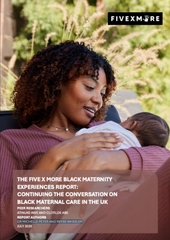
Five X More Pdf, 2.6mb
Published: July 2025
When Five X More published the first Black Maternity Experiences Report in 2022, they did so to shine a light on truths too often ignored. That report wasn’t just data. It was a collective testimony that challenged the system to listen, and since then, real momentum began to build.